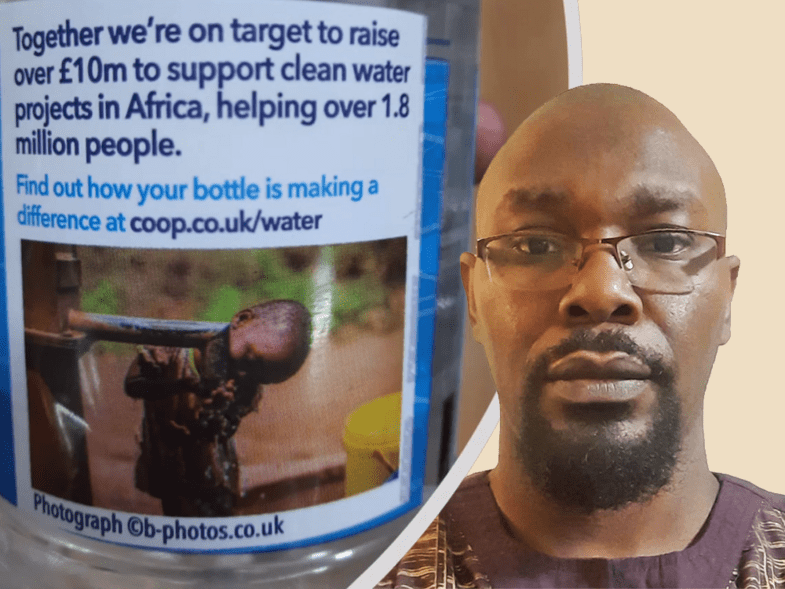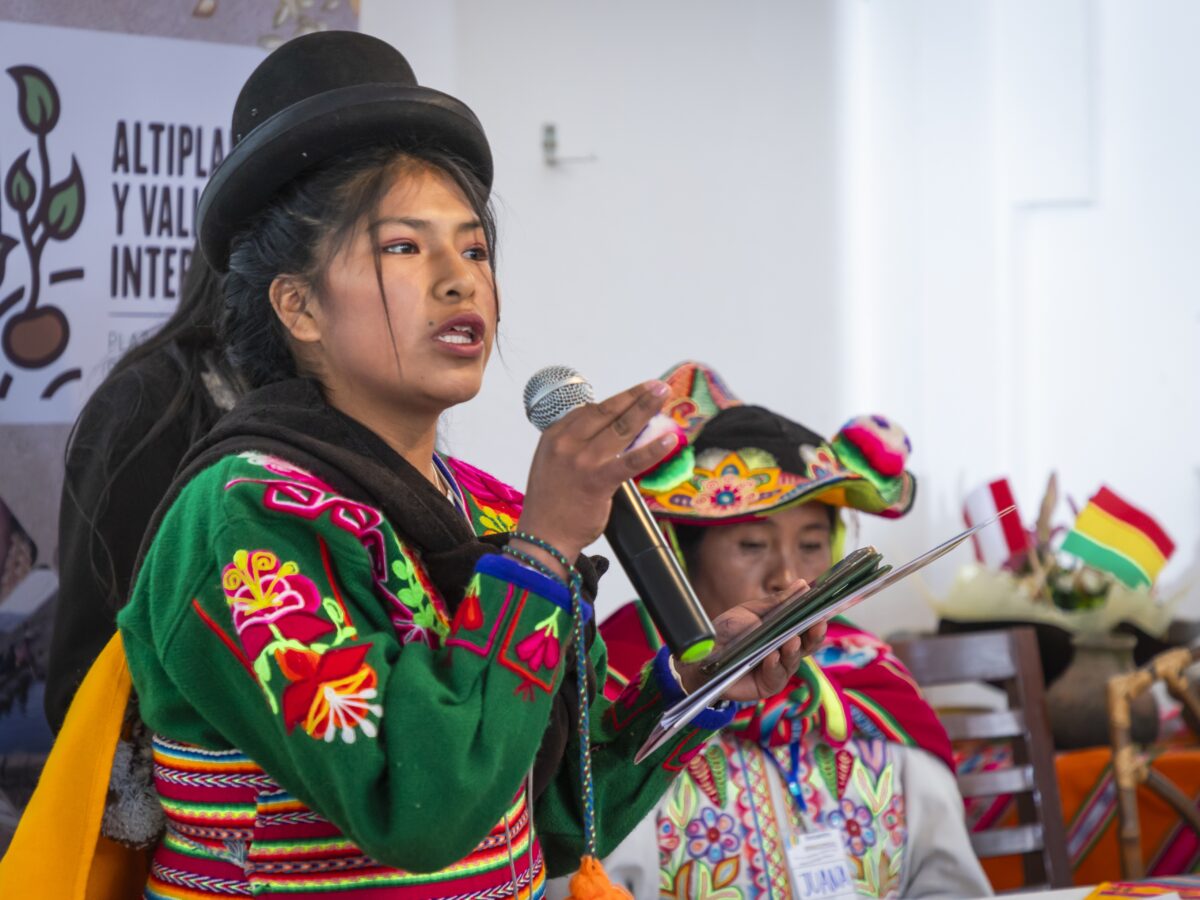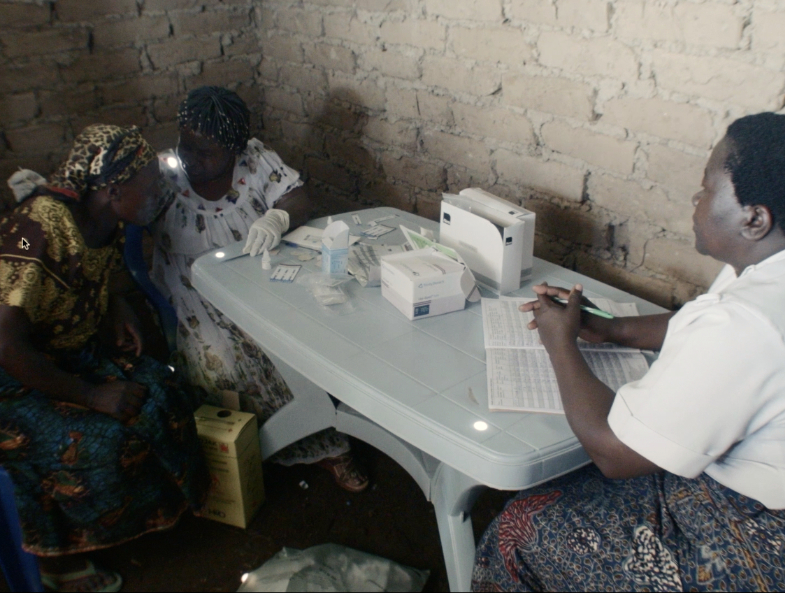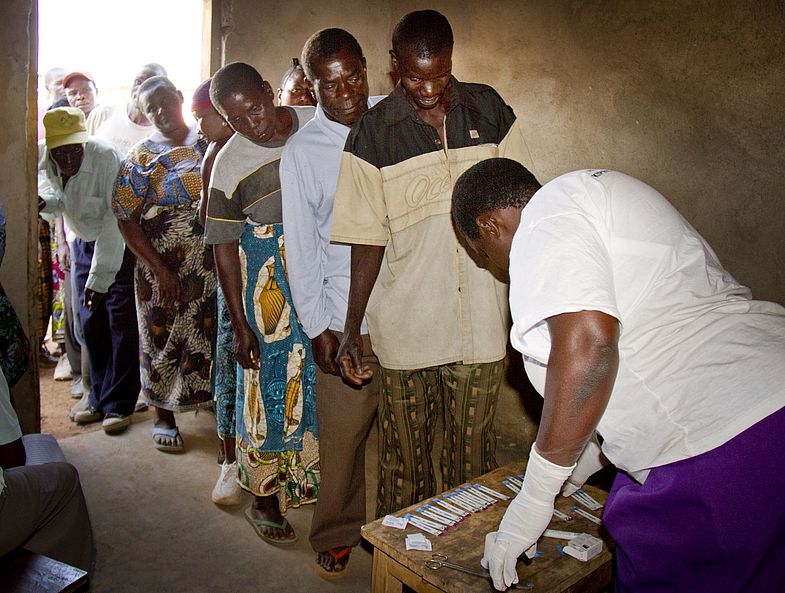"What do you see?" asks Muganzi Muhanguzi Isharaza to the audience. He shows a photo of a water bottle with a label. On it, a British organization recommends donating to water treatment in Africa. The project has already helped 1.8 million people. In a photo next to the text, a black child drinks water from a pipe.
At first glance, the picture may seem completely unproblematic to many. "I see several problems right away," says Muganzi Muhanguzi Isharaza: "First of all, Africa is not a country. Africa is a continent, about 14 times bigger than Europe, with 54 different states and is home to 1.5 billion people." Talking about Africa here reproduces the image of a uniform, homogeneous territory. A generalization that does not do justice to the highly diverse continent with countless peoples, languages and correspondingly many contexts. Such simplifications promote the dichotomy in the minds of people in the Global North that "we must help the poor people in Africa after all." Precise language and the visualization and communication of the reasons for a concrete crisis in a specific context are indispensable.
Decolonization is a chaotic, dynamic, contradictory process, because it looks different for each context, each individual and each situation. But this process is existentially important, all the more so because non-profit organizations are important sources of information about situations in the Global South for Western media and thus for Western society. Sometimes their assessments are even rated higher than the official statements of the respective governments. Reason enough to strive for fair language and imagery.
Beyond that, however, he said, nonprofits need to give much greater prominence to the voices of those they seek to serve: in fundraising and advocacy campaigns, but also in the planning, implementation, and evaluation of development programs. In his view, there is a need to work toward transferring responsibility, agency, and legitimacy from the global or so-called international community to local communities.






